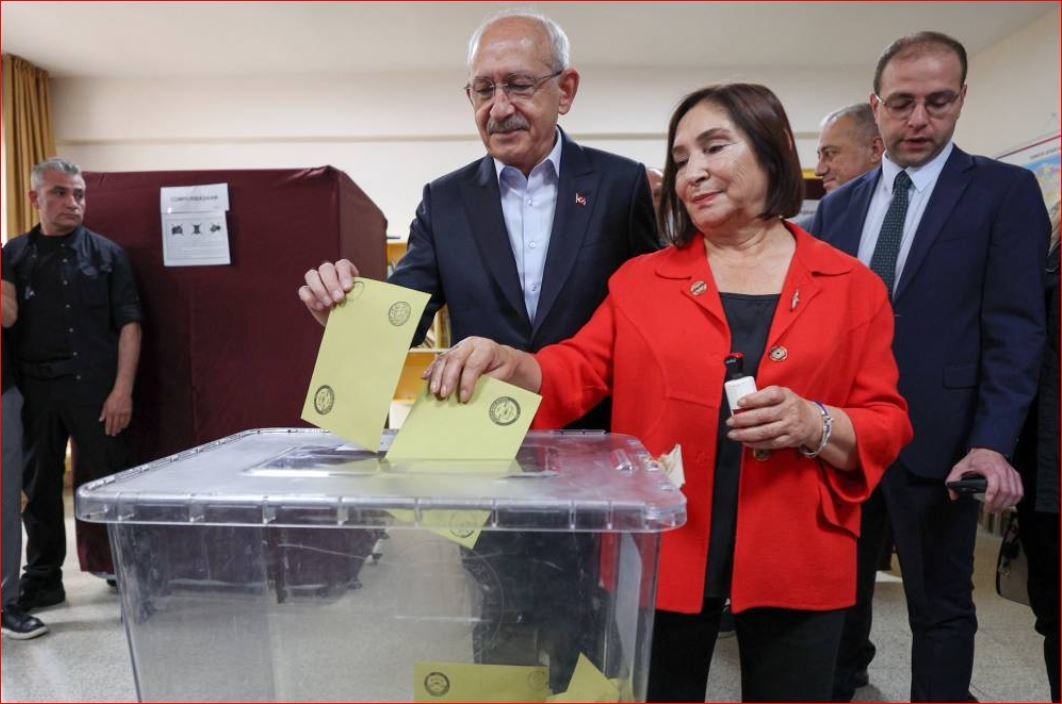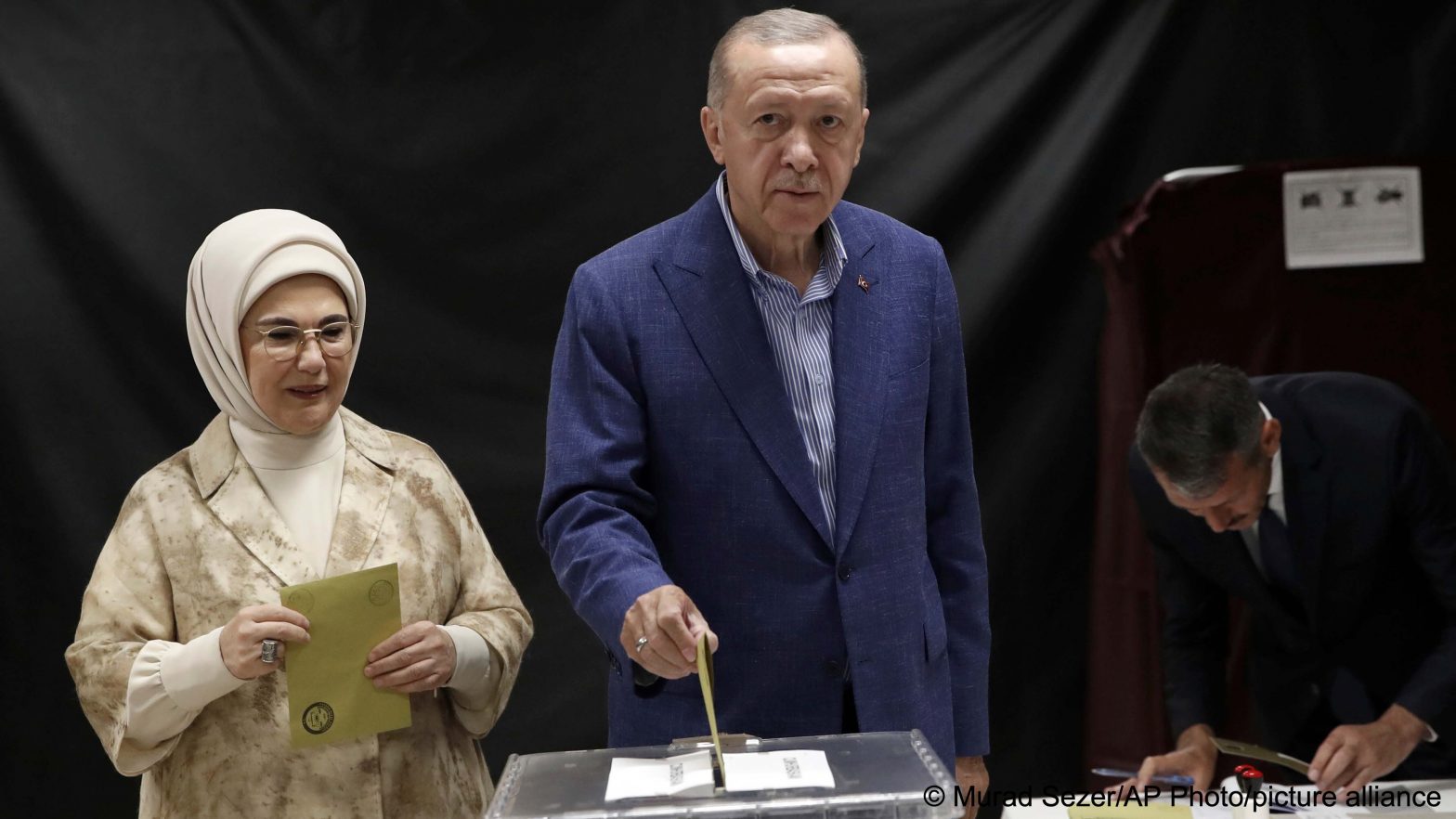In the ongoing presidential runoff elections in Turkey, the current President Recep Tayyip Erdogan is vying for an unprecedented third term in office. His opponent is the experienced statesman Kemal Kilicdaroglu, who leads the progressive Republican People’s Party (CHP). In the initial round of voting that took place on May 14, Erdogan marginally outpaced Kilicdaroglu by almost five percentage points but couldn’t secure the mandatory 50% vote share needed for a clear win.

Despite the tension of the presidential race, Erdogan’s parliamentary bloc managed to secure a majority in the parliamentary contest that occurred simultaneously. Erdogan’s chances of securing the presidency in the runoff have been further bolstered by the public endorsement from third-place candidate Sinan Ogan, who won 5% of the first-round vote.
The May 14 vote defied many poll predictions, which had suggested that Kilicdaroglu would take the lead. The turnout for the election was remarkably high, with nearly 90% of the population casting their votes. This runoff pits the strongman incumbent against an unprecedented unified bloc of six opposition groups rallying behind Kilicdaroglu, in an attempt to end Erdogan’s two-decade-long reign.
The opposition contends that this election represents a crucial stand for Turkish democracy, which they argue has been systematically hollowed out during Erdogan’s tenure. Critics accuse the president of weakening judicial power, stifling dissent, and consolidating his power base at the expense of democratic institutions.
Apart from the political challenges, Erdogan faces serious hurdles in the form of a faltering economy and the aftermath of a devastating earthquake on February 6, which resulted in over 50,000 fatalities in Turkey and neighboring Syria. Critics pointed to the government’s lackluster rescue operation and lax construction standards, especially under the ruling AK party’s rule, which they claim exacerbated the tragedy. The government later admitted its “mistakes” and apologized to the public.
The national financial crisis has also been laid at Erdogan’s feet. His critics argue that by suppressing interest rates, he allowed inflation to run rampant. Despite these substantial challenges, electoral results from May 14 reveal sustained support for Erdogan, particularly in his conservative strongholds, including in areas severely affected by the earthquake.
Erdogan, in an interview with CNN’s Becky Anderson last week, defended his economic policies, asserting a positive correlation between interest rates and inflation. He also emphasized his “special” relationship with Russian President Vladimir Putin and his controversial stance on blocking Sweden’s access to NATO.
The Turkish president has accused Sweden of harboring Kurdish terror groups and has conditioned Stockholm’s NATO accession on the extradition of wanted individuals. Despite this demand being rejected by Sweden, Erdogan continues his stance, further complicating NATO’s unified response to Russia’s invasion of Ukraine.
Since the onset of Russia’s assault on Ukraine in February 2022, Erdogan has assumed an essential role as a negotiator. His stance of “pro-Ukrainian impartiality” has been instrumental in facilitating critical deals like the Black Sea Grain Corridor Initiative. This pact prevented a potential worldwide food shortage by releasing millions of tons of wheat trapped due to the invasion. Originally set to conclude last week, the agreement has been prolonged for an additional two months.
As the decisive vote begins, Erdogan’s pursuit of a historic third term is set against a myriad of domestic and global challenges. The election’s result won’t merely shape Turkey’s domestic politics; it could also influence its ties with NATO and its reaction to the ongoing conflict between Russia and Ukraine.
©world-news.biz
